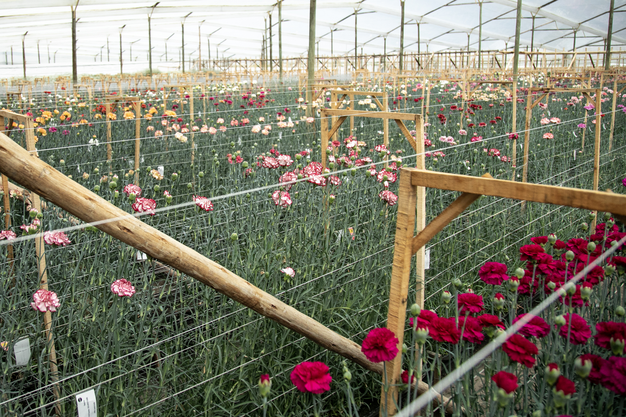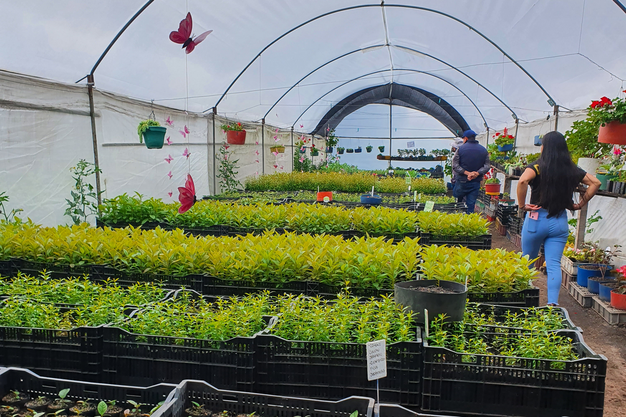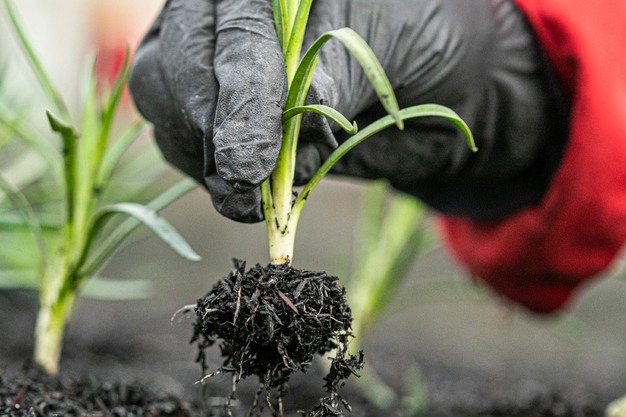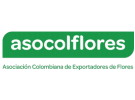Asocolflores highlights that ,at Cop16, the Colombian flower industry will show its main achievements in matters of protecting ecosystem solutions: 50% downsizing in the use of chemical pesticides, 600% increase in the use of bioinputs, protection of over 200 bird species, and the implementation of 12 native flora rooting beds.
"COP16 will allow us to show the world the initiatives that Colombian floriculture has undertaken to meet the goals set by COP15 Global Biodiversity Framework in Canada, two years ago. We are proud to represent the Colombian productive sector and to show that it is possible to have profitable and sustainable businesses in agriculture", said Augusto Solano, CEO of the Association of Colombian Flower Exporters, Asocolflores.

Asocolflores will share the results obtained by the Colombian flower producers in GBF goals such as target 10 (Ensuring that areas under agriculture are managed sustainably.) "Towards achieving this goal, the Florverde Sustainable Flowers certification that was created in Colombia 28 years ago. Today it gathers more than 125 certified companies with flower farms covering over 5,000 hectares of land."
Concerning target 2 (ecological renovation), projects like "Rooting Beds" and "The Study of Birds" will be highlighted by Asocolflores. "The Rooting Beds allow the member companies of Asocolflores to have physical and technical resources at hand to produce more native species of trees and shrubs. There are already 12 "Rooting Beds" in the flower farms in the Savannah of Bogota, Colombia which contributes to the ecological restauration of diminished areas, and the enhancement of sustainable practices within the agricultural landscape.
One of the most recent examples of the efforts of Colombian floriculture is the preservation of the ecosystems in the context of a study called "The Birds of Flowers 2". The results show the compelling way in which flower landscape units and the water reservoirs in Cundinamarca and Antioquia give shelter to more than 200 bird species, offering them solace and protection.
According to the conclusions of the Bogotá Association of Ornithology (ABO, in Spanish), an organization associated with Asocolflores in this study: "Field findings show that the implementation of sustainable practices in floriculture have contributed significantly to the preservation of the country's avifauna, providing the birds with potential habitats that aid their survival in the rural landscapes where the flower plantations are located".
Additionally, during COP16, other achievements relating to the following GBF targets will be discussed:
- Target 7 (Reduce Pollution): "In the last 25 years, flower farms have been able to reduce by 50% the use of chemical pesticides, and increase by 600%, in the last 10 years, the use of bioinputs."
- Target 11 (Contributions to Nature): Risk assessments, environmental management programs, struggle against deforestation, and protection of endangered species in flower plantations through the standards of Florverde Sustainable Flowers.
- Target 15 (Entrepreneurial Activities): Implementing landscape management tools (HMP, in Spanish) at the flower farms to provide sustainable management to the agricultural landscape, including the preservation of biodiversity, the protection of water resources, and the promotion of sustainable agricultural practices.
- Target 20: (Strengthen Capacity-Building and Technology Transfer and Access): The Colombian Center for Floriculture Innovation (Ceniflores) will be present, as well as its research projects jointly with other main actors of the system.

Regarding the participation of floriculture in COP16, Jorge Bedoya, President of the Farmers Association of Colombia (SAC, in Spanish), stated: "For decades, Flowers of Colombia have been a role model for national and international agriculture in matters related to the preservation and representation of the natural ecosystems and all forms of life. The environmental restoration of native trees and the protection of water and avifauna are just some of the activities sponsored by Asocolflores, and which currently deserve recognition".
For more information: Asocolflores
Asocolflores
www.asocolflores.org










